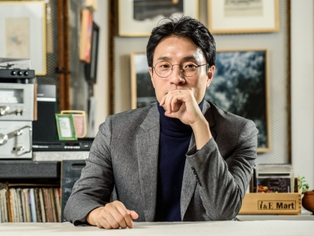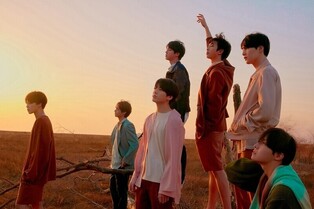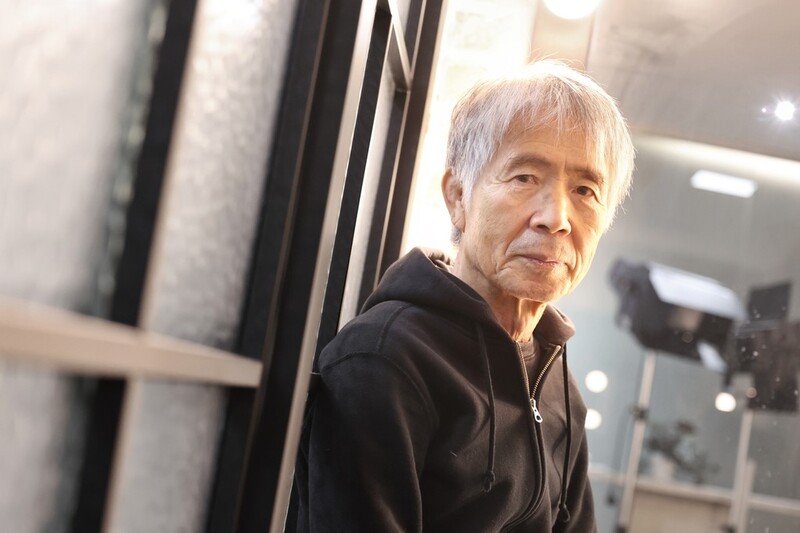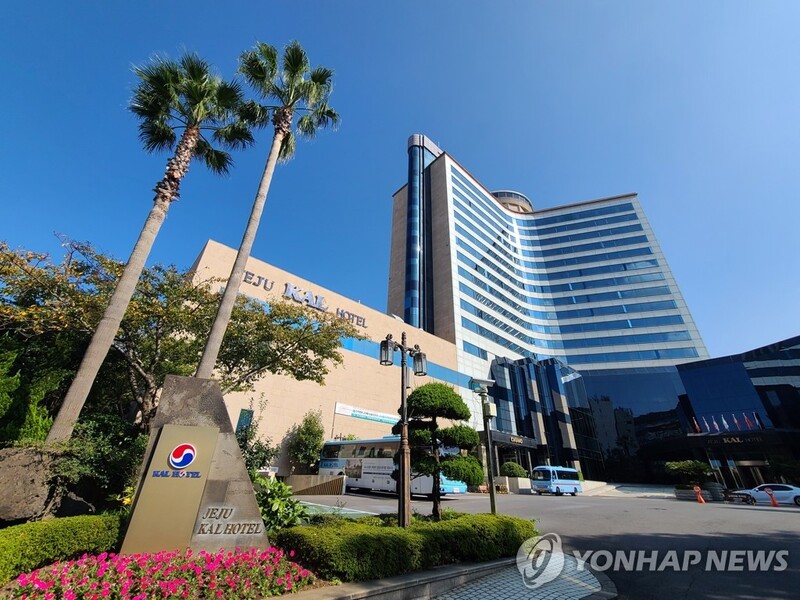 |
| ▲ This photo, shows Jeju KAL Hotel. (Yonhap) |
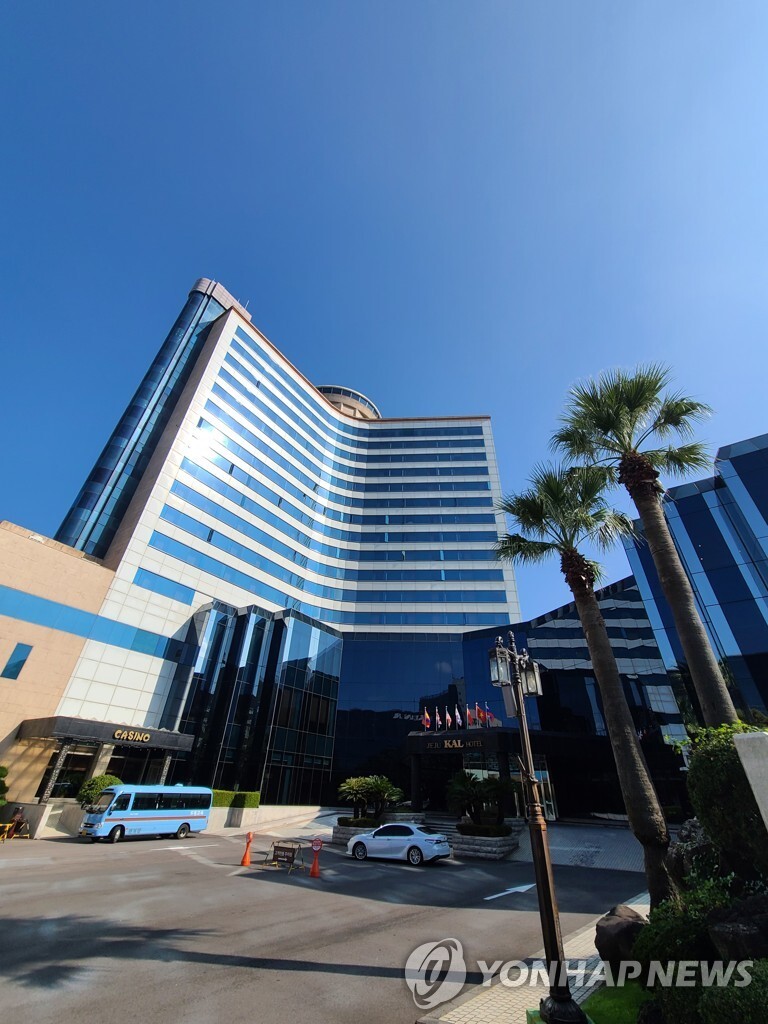 |
| ▲ This photo, shows Jeju KAL Hotel. (Yonhap) |
SEOUL, Apr. 26 (Yonhap) -- Jeju KAL Hotel, which has enjoyed its reputation as Jeju's tallest landmark for many years, is disappearing into history.
On the 21st, Jeju City completed the process of Jeju KAL Hotel closing, as it has completed the application for the closure of Jeju KAL Hotel submitted by KAL Hotel Network Co,.
With this, Jeju KAL Hotel is closing on the 30th after 48 years.
It has been conveyed that about 70 employees who used to work at the hotel has moved to the Seogwipo Kal Hotel this month.
Jeju KAL Hotel was the earliest first-class hotel to enter downtown Jeju on 18th February 1974.
Before Jeju KAL hotel, the 30-room "Jeju Tourist Hotel (renamed to Honey Crown Hotel)" enjoyed its reputation as the first private hotel in Jeju, but changed after the establishment of KAL hotel.
Jeju KAL Hotel has two floors underground, and 18 floors above with 320 rooms available. The building is 67m high and 123.5m above sea level.
During that time, it even earned its reputation as the largest hotel built south of the Han River.
The impact that Jeju KAL Hotel had on the Jeju community was enormous.
"The Development of Jeju Tourism through Newspapers (by Moon Seong-min)" stated, "At that time, buildings with 4 or 5 floors were also rare. So, when the 18-story hotel building was constructed, the reaction of the local community was more negative than positive. Easily put, there was many people who took it as a building that blocks the view of the Hallasan Mountain, not as a landmark that symbolizes the development of tourism in Jeju."
When the Jeju KAL Hotel was constructed, there were no legal restrictions on the height of the buildings in Jeju.
With this, there were also funny public opinions saying that the restriction of the height of the buildings should be based on the Jeju KAL Hotel.
Other than Jeju KAL Hotel which has already been built, Jeju Island has then set up a height restriction on buildings with 55m while Seogwipo city has set up a height restriction of 40m. Like this height restrictions of buildings were established for each regions.
Around this period, the number of tourists visiting Jeju, which has emerged as South Korea's representative honeymoon destination, has steadily increased.
With many favorable factors, including the Asian Games and Olympics being held in South Korea one after another, there was a sudden boom in the construction of tourist hotels.
In fact, in the 1980s, large-scale first-class hotels with more than 200 rooms were built including Jeju Grand Hotel, Hyatt Regency Jeju and Crown Plaza Hotel.
Additionally, in the 1990s, the Shilla Jeju and Paradise Hotel Jeju opened. In 2000, Lotte Hotel Jeju opened and Ramada Plaza Hotel opened in 2003.
Consequently, Jeju Free International City and Jeju Special Self-Governing Province began competing for the tall hotel buildings.
This is because the height restrictions on buildings in the province has been lifted due to various factors including law enforcement on the aviation or to revitalize the local economy.
Afterwards, in the February of 2014 in Yeondong, Jeju, Lotte City Hotel Jeju was built with a height of 89.95m with 4 floors and 22 floors above, becoming the highest building in Jeju.
However, on 18th December 2020, about six year later, the Jeju Dream Tower Resort opened with the title of the tallest and largest building in Jeju.
(This article is translated from Korean to English by Haemin Kim.)
(END)
(C) Yonhap News Agency. All Rights Reserved







